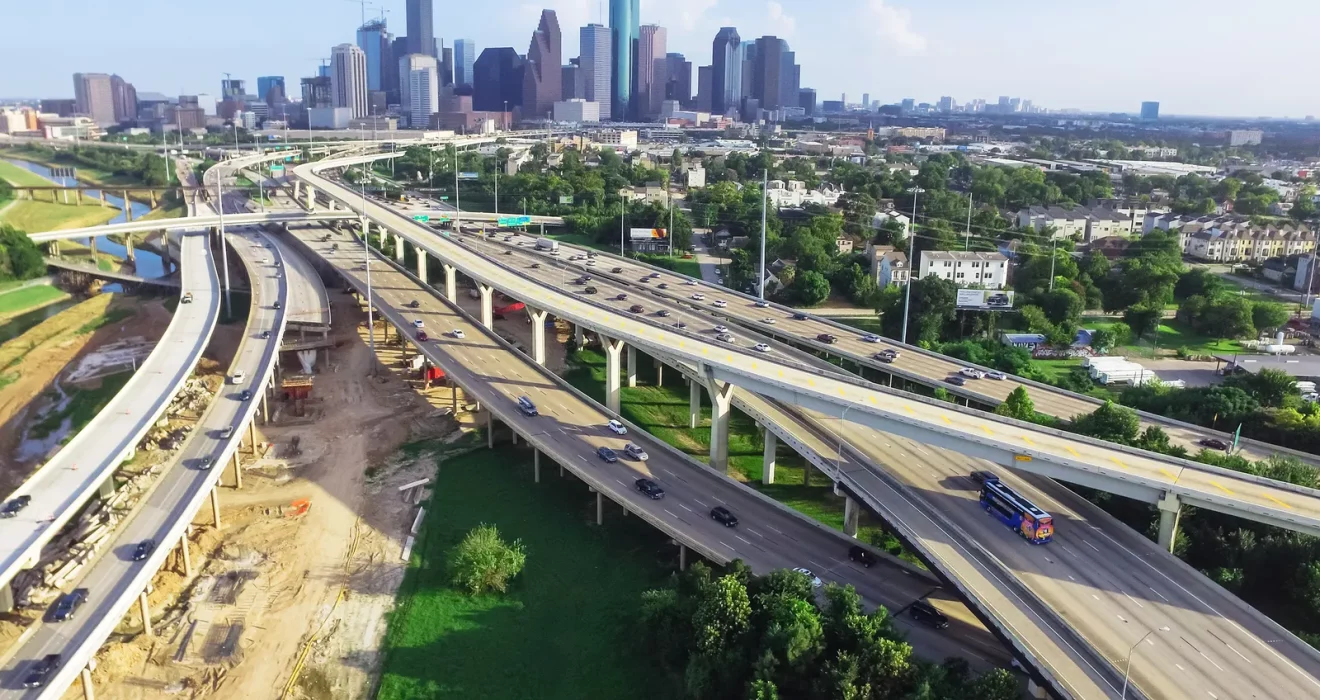In recent weeks, the landscape of infrastructure development has taken a controversial turn, with governments in various regions announcing ambitious highway expansion projects. While some leaders boast about economic benefits and improved connectivity, the underlying environmental impact of these initiatives cannot be ignored.
llinois’ Highway Expansion: A Boon or Bane?
Governor JB Pritzker’s recent announcement of a highway expansion in Illinois under the Rebuild Illinois initiative has stirred both excitement and concern. The promise of unlocking federal funding to transform a four-lane highway into a six-lane thoroughfare raises questions about the balance between progress and environmental responsibility.
The safety enhancements and job creation touted by Governor Pritzker are undoubtedly crucial aspects of infrastructure development. However, concerns linger about the potential environmental repercussions and the long-term sustainability of a larger highway. As the project moves forward, the people of Illinois find themselves at the intersection of progress and ecological responsibility, prompting a broader conversation about the future of transportation infrastructure in the region.
Ontario’s Controversial Highway Projects
Ontario, Canada, takes center stage with its conservative government pushing forward two highway projects around Toronto. Despite greenbelt protections and environmental warnings, the government remains resolute. Environmental Defence’s critique of Highway 413 as a “redundant and unnecessary mega highway” raises questions about the trade-off between development and environmental preservation.
The controversy surrounding Ontario’s highway projects highlights a recurring theme: the clash between economic development and environmental sustainability. The Greenbelt, intended as a shield against unchecked expansion, faces a formidable challenge from infrastructural ambitions. As Environmental Defence warns of billions in taxpayer money being invested in a project that could significantly contribute to greenhouse gas emissions, the need for a holistic and sustainable approach to development becomes evident.
Austria’s Green Approach
Contrary to the global trend, Austria, under the influence of the Green Party, is canceling highway projects. Minister for Infrastructure, Leonore Gewessler, emphasizes the long-term consequences of unchecked highway construction, acknowledging the environmental toll and envisioning a future free from excessive concrete and destruction.
Austria’s decision to cancel highway projects presents a paradigm shift in governmental priorities. Minister Gewessler’s forward-thinking approach, grounded in a commitment to environmental sustainability, challenges the conventional wisdom of relentless highway expansion. Acknowledging the historic duty to combat the climate crisis, Austria’s example serves as a beacon for nations grappling with the balance between development and ecological preservation.
Carbon Footprints of Highway Construction
A seldom-discussed aspect of highway projects is their significant carbon footprint during construction. Drawing insights from Leonore Gewessler’s statements, this section highlights the environmental impact of expanding road networks and the overlooked emissions generated by tunneling. Comparisons with alternative transportation modes, such as rail, further underscore the urgency of reevaluating our infrastructure priorities.
While the focus on the operational carbon footprint of vehicles is commonplace, the emissions generated during the construction phase often evade scrutiny. Minister Gewessler’s emphasis on the CO2-intensive nature of tunneling and the overall expansion of road networks prompts a critical examination of the hidden environmental costs. The need for a comprehensive analysis that considers not only the end-use emissions but also the carbon intensity of construction becomes evident.
A City Divided over a Tunnel
Examining a specific case in Vienna, where a controversial tunnel project faces opposition despite claims of traffic relief, showcases the clash between traditional traffic-centric policies and the evolving demands of the 21st century. The city’s well-established transit infrastructure and vocal community protests signal a paradigm shift towards sustainable mobility policies.
Vienna, a city renowned for its exemplary transit infrastructure, finds itself at a crossroads. The proposed tunnel, touted as essential for traffic alleviation, has sparked fervent opposition from community groups advocating for sustainable, future-oriented mobility policies. The clash between outdated traffic-centric strategies and the growing need for environmentally conscious solutions exemplifies the global struggle between tradition and progress.
Lessons for Every Nation
As we navigate through the complexities of highway expansion, the concluding section synthesizes the global implications of these infrastructure choices. From carbon emissions to urban sprawl, the blog urges governments worldwide to reconsider their priorities, emphasizing the need for sustainable, future-oriented mobility policies that prioritize public transport and environmental preservation.
The global relevance of the highway expansion debate extends far beyond individual nations. As we stand at the precipice of a climate crisis, every decision regarding infrastructure becomes critical. Drawing inspiration from the examples of Illinois, Ontario, and Austria, nations must reassess their development strategies. The urgency to align infrastructure projects with environmental sustainability has never been more apparent.
Conclusion:
In the race to expand highways, governments must recognize the environmental consequences and adopt a forward-looking approach. The examples of Illinois, Ontario, and Austria illustrate the spectrum of choices, each with its unique set of challenges. As we stand at the precipice of a climate crisis, the imperative to build a sustainable future through responsible infrastructure decisions has never been more urgent. It’s time to break free from the chains of destructive highways and pave the way for a greener, more resilient tomorrow.

